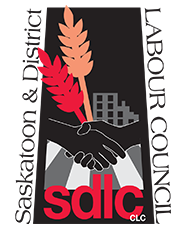Tough economic times call for a strong public sector
After years of cuts to the public service, government must recognize that a strong public sector is crucial for supporting Saskatchewan families and communities during difficult times, according to SGEU.
“Today’s budget underscores the need to maintain public service positions in order to provide the vital services that Saskatchewan people rely on,” says Bob Bymoen, SGEU president.
Public services have been drastically reduced in recent years by the government’s four-year workforce reduction strategy, which resulted in a 15 percent cut across the public service.
“Program and service delivery have been undermined, and the people of Saskatchewan cannot withstand any more cuts to public services,” says Bymoen. “Frontline workers deliver services to families and communities that keep vulnerable people safe, protect our environment, maintain our roads, and ensure public safety – and they are reliable and efficient.
Cuts announced in today’s budget, including the closure of the Buffalo Narrows Community Correctional Centre, will negatively impact the services provided to Saskatchewan people, especially those living in the community of Buffalo Narrows.
Today’s announcement regarding transformational changes to health and education will be assessed by SGEU, which represents workers in both fields.
“Changes to administrative structures could potentially impact workers on the frontlines of health care,” says Bymoen. “We want to make sure these changes don’t alter day-to-day operations or affect frontline service.”
Today’s budget committed to substantially increased funding for wildfire management, but Bymoen says this funding doesn’t go far enough given years of cuts.
After government’s decision to reduce the size of initial attack firefighting teams, replace dependable tower observers with unreliable cameras, and cut the wildfire management budget by 45% between 2010 and 2016, much more is needed to restore Saskatchewan’s wildfire preparedness to where it should be.
“It is the job of government to maintain emergency management services to ensure a full and speedy response in a crisis, but this is difficult to do when government undermines wildfire prevention through cuts,” says Bymoen. “In the end, these decisions cost the government millions of dollars last year in the wake of the wildfire crisis.”
Bymoen also says he is disappointed that government did not announce an increase in funding for community-based organizations (CBOs). While government has provided some piecemeal funding in recent years, no major across-the-board funding increases for CBO worker wages have been provided since 2012.
“Community service workers care for some of the most vulnerable people in our province,” says Bymoen. “They help children in crisis, people with intellectual and physical disabilities, women fleeing violent relationships – and yet they continue to be undervalued and underpaid.”
In particular, SGEU is disappointed that the budget did not reverse the recent $100,000 budget cut to the Prince Albert Mobile Crisis Unit, which forced the agency to stop providing weekday daytime service.
Although resource revenue is down, Bymoen says the province’s deficit could have been reduced had the government not squandered money through its fixation on privatization and public-private partnerships (P3s).
Today’s budget devotes $983 million – including $500 million just for the Regina Bypass – to payments on the provincial government’s four major P3s.
“Government’s decision to use a P3 model instead of traditional public procurement is wasteful, ideologically driven and bad business,” says Bymoen. “Evidence from around Canada and the world has shown P3s cost taxpayers more – so why are we spending hundreds of millions of dollars on these needlessly costly contracts?”
As well, SGEU questions how much of the $1.15 billion budgeted for highway repair will be wasted on expensive private consultants, when it is more cost-effective for Ministry of Highways staff to carry out projects.
Bymoen also points to the government’s liquor privatization plan, which will further reduce public revenue even as government struggles to deal with a resource revenue shortfall. Despite government claims that privatization will be revenue neutral, a financial analysis of the privatization plan shows that it would cost Saskatchewan $115 million in lost revenue over the next five years alone.
“Why, in times like these, are we throwing away a reliable source of public revenue?” asks Bymoen.
SGEU calls on government to recognize that P3s, privatization, and the underfunding of public services are not what Saskatchewan needs to see the province through its economic challenges.
“Public services are a cost-effective investment that provides tremendous returns for the province,” says Bymoen. “Maintaining a strong public sector will ensure that Saskatchewan people have the support they need in 2016-17 and the years to follow.”
- 30 -
For more information contact:
Bob Bymoen Chelsea Flook
SGEU President Communications Officer
306.539.0030 306.527.3117





